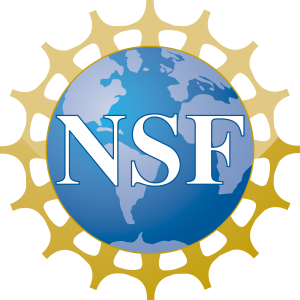 The National Science Foundation (NSF) has made 17 Next Generation Networks for Neuroscience (NeuroNex) awards to aid the research community as it pursues one of its grandest challenges: understanding the brain.
The National Science Foundation (NSF) has made 17 Next Generation Networks for Neuroscience (NeuroNex) awards to aid the research community as it pursues one of its grandest challenges: understanding the brain.
These projects will support the development of innovative, accessible and shared capabilities and resources, as well as theoretical frameworks and computational modeling to advance neuroscience research. The overall goal of this activity is to establish a coherent national infrastructure to enhance our understanding of brain function across organizational levels and a diversity of species.
NeuroNex is one element of Understanding the Brain, NSF’s multi-year effort to enable a scientific understanding of the full complexity of the brain. Nine of the new awards are for NeuroNex Neurotechnology Hubs, which will focus on the development, refinement, and dissemination of innovative neurotechnologies.
Some of the award titles, principal investigators, and sponsor institutions are listed below.
NeuroNex Neurotechnology Hub awards:
- Optical technologies for large scale, noninvasive recording of neural activity: Chris Xu, Cornell University
- Miniaturized open source devices for calcium imaging, electrophysiology and real-time control of neural activity: Peyman Golshani, University of California, Los Angeles
- Integrated circuit cracking (ICC) with linked tools for diverse systems: Karl A. Deisseroth, Stanford University
NeuroNex Innovation awards:
- Southwest Magnetogenetics Project (SoMa): Jacob Robinson, Rice University
- Towards automatic analysis of multi-terabyte cleared brains: Joshua Vogelstein, Johns Hopkins University
- A national resource for mesoscale and connectomic brain mapping: Narayanan (Bobby) Kasthuri, University of Chicago
The Computing Community Consortium (CCC) has also been working in this space for many years including co-sponsoring a brain science and computer science workshop with NSF in late 2014, called Research Interfaces between Brain Science and Computer Science. The purpose of the workshop was to bring together computer scientists and brain scientists to articulate new research opportunities and “brain”-storm grand challenges. Over 70 computer scientists and neuroscientists from academia, industry, and government were in attendance and between 160-300 participants viewed each panel and plenary on the live-stream. You can see all the videos and slides from the workshop here. The workshop report suggests that the study of computing and the study of the brain interrelate in three ways, each suggesting a major research direction.
- First, the experimental study of brain architecture and function is a massive-data problem. Making progress necessitates advances in computing and the realization of new computational tools.
- Second, the study of efficient algorithms and the design of intelligent autonomous systems should provide new ideas and inspiration concerning brain architecture and function.
- Finally, the remarkable efficiency (including energy efficiency) of the brain, once understood, may inspire radically new algorithmic or system organization approaches that could transform computing itself.
Learn more about the 17 Next Generation Networks for Neuroscience (NeuroNex) awards here.










Trackbacks /
Pingbacks